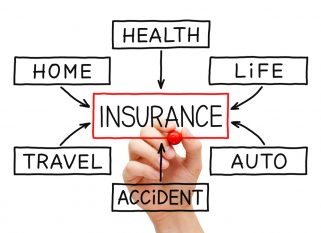Car accidents are a dangerous normalcy in New Jersey. Given the increase in technology use behind the wheel, accidents are on the rise.

New Jersey is one of seven no-fault states in the country. This means that, regardless of who is responsible for an automobile accident, one’s own car insurance company will cover any medical and property damage expenses incurred as a result of the accident. As such, it is imperative to understand what type of New Jersey auto insurance coverage you have, and to what extent your service provider will cover damages.
What does New Jersey auto insurance typically cover?
“Full Coverage” is a subjective and misleading term. The New Jersey Department of Banking and Insurance reports that the Standard Auto Insurance Policy is no longer required by law thanks to the Automobile Insurance Cost Reduction Act; as such, New Jersey motorists are often driving around with what is called a Basic Policy, which by no means represents ‘full coverage.’ It includes the following coverages, according to the New Jersey Department of Banking and Insurance:
Property Damage Liability Coverage, up to $5,000 for an accident. This makes up the meat of an insurance policy. It is the primary way a person will cover damages to another person’s body or vehicle if they are the liable party in a car accident.
Personal Injury Protection (PIP), up to $15,000 per person, per accident, and as much as $250,000 for injuries that cause serious or permanent damage to the brain or spine.
As named, this is the part of the auto insurance policy that covers one’s own medical expenses if they are in a car accident, no matter who is at fault. Auto insurance providers in other states that do not have PIP requirements face difficulty when their clients are in an accident that is caused by an uninsured motorist, or they are part of a hit-and-run.
Collision Coverage, optional. Most New Jersey motorists elect to have collision coverage, though it is not required by law. It covers damages sustained by hitting objects or being hit by objects or cars.
Finding Fault: NJ Comparative Negligence

It is important to have the support of a lawyer for this process because New Jersey has what is called comparative negligence, in which degrees of fault are determined. If you file a personal injury claim against another driver, it is certain that their insurance company will investigate whether you contributed to the accident at all. If it is found that you had a percentage contribution to causing the accident, that percentage will be removed from the monetary damages you claim.
Comparative negligence is investigated on a case-by-case basis, and while it is addressed in New Jersey Statutes Annotated (NJSA) 2A:15-5.2, there are no specific guidelines determining the process by which comparative negligence is determined. As such, again, it is important to have the support of an experienced legal team on your side.
Fault can be determined to utilize such evidence as photos taken at the scene by you or the police, the police report with all parties’ statements, area traffic laws, and other applicable data from the scene of the accident. Each insurance company will look for evidence of distraction, violation of traffic law, or failure to prevent escalation of an accident in order to defend their client and prove some percentage of comparative negligence on the part of the other party.
Retain an Experienced Car Accident Injury Law Firm in Monmouth County NJ
At Chamlin, Uliano & Walsh, our experienced team of experts supports the claims of drivers across Red Bank, Freehold, Long Branch, and Monmouth County in all auto accident cases, including as it relates to comparative negligence in the no-fault state of New Jersey.
For a confidential case assessment of your car accident, please contact us online, or through our West Long Branch office at 732-440-3950. We look forward to supporting you.
